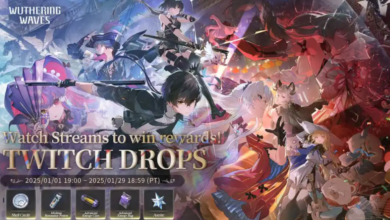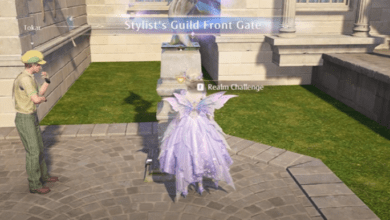Attack on Titan: A Realistic, Unflinching Portrayal of War and Its Impact on Humanity
When we think of war-focused media, many franchises tend to glorify battles, heroic triumphs, and the thrill of victory. But Attack on Titan takes a vastly different approach, diving deep into the brutal realities of war, leaving no room for romanticizing violence. Created by Hajime Isayama, this globally successful anime and manga series isn’t afraid to show the ugly side of conflict. From the very first episode, the story pulls no punches in illustrating the devastation war brings, forcing viewers to confront harsh truths about violence, loss, and the human condition.

In this article, we’ll explore how Attack on Titan stands apart from other media, with its gripping portrayal of war’s impact on individuals and societies, and how its anti-war message resonates so powerfully with its audience.
A Dark Beginning: Attack on Titan’s Sobering Introduction
Attack on Titan doesn’t waste time getting straight to the harsh reality. From episode one, we are thrust into a chaotic, terrifying world where humanity is trapped behind enormous walls to protect themselves from Titans, monstrous humanoid creatures that threaten their existence. Wall Maria, the outermost defines, is breached by the Titans, and in a matter of moments, lives are shattered.

One of the most gut-wrenching scenes in the series is the death of Carla Yeager, Eren’s mother, who is gruesomely killed right in front of him. The visceral brutality of her death being pinned by rubble, then devoured by a Titan sets the tone for the series. It’s not just about epic battles and flashy heroics. It’s about survival in a cruel, unforgiving world. Watching Eren’s rage and helplessness mirror the experience of many real-world war victims, we are reminded that in war, there are often no true victors, only casualties.
War Through a Realistic Lens: Isayama’s Approach
Most war-related media focuses on the external battles, showing us glorious victories or focusing on strategic brilliance. But Attack on Titan does something different. Isayama’s portrayal of war is deeply personal. It examines the long-term effects of conflict, not just on the battlefield, but on the people forced to live through it. From mental illnesses like Reiner’s Dissociative Identity Disorder to the crushing weight of survivor’s guilt, every character in Attack on Titan carries the scars of war.

In the war between Eldia and Marley, Isayama draws parallels with real-world conflicts, illustrating the cyclical nature of violence, fueled by hatred and misunderstanding. The people of Eldia despise the Marleyans for their oppression, while Marley views the Eldians as a constant threat due to their Titan powers. This deep-seated mistrust is a reflection of how wars in the real world often stem from generations of unresolved conflict and prejudice.
The Human Toll: Loss, Trauma, and Mental Illness in Attack on Titan
While Attack on Titan is packed with thrilling, high-octane battle scenes, it never lets us forget the emotional toll of war. For every victory, there’s a loss. Eren, Mikasa, and Armin who we follow closely throughout the series represent the devastation that war leaves in its wake. Each of them has lost loved ones, their homes, and any semblance of normalcy. They are constantly in survival mode, their personalities shaped by the traumas they’ve endured.

One of the most impactful moments in the series comes during Commander Erwin’s suicide charge against the Beast Titan. Erwin knowingly sends his soldiers to their deaths, a decision that haunts him, particularly in a flashback where he laments his role in leading so many to their demise. This scene, with Erwin standing atop a pile of fallen comrades, perfectly captures the emotional weight of leadership in times of war. It’s not just about tactical victories it’s about the lives lost and the impossible decisions leaders must make.
Breaking Down the Aftermath of War: PTSD, Depression, and Identity Crises
As we dive deeper into the series, Attack on Titan continues to explore how war leaves lasting damage on the psyche. Characters like Reiner struggle with mental illness, specifically dissociative identity disorder, a result of the years of trauma he’s experienced as a child soldier. This condition reflects the dissonance many real-life soldiers feel when returning from war, torn between their actions in battle and their personal sense of morality.

The series also touches on depression, particularly through characters who lose their sense of purpose. Eren, for example, undergoes significant psychological changes as the series progresses, his early sense of righteousness eroded by the sheer scale of the violence he’s witnessed. His quest for revenge becomes a spiral into nihilism, reflecting the emotional numbness that often accompanies prolonged exposure to violence.
Racial Discrimination and The Cycle of Hatred
One of the most compelling aspects of Attack on Titan is how it addresses the theme of racial discrimination. The conflict between Eldia and Marley is rooted in centuries-old grudges and racial animosity. Marleyans despise Eldians because of their historical use of the Titans to terrorize the world. In turn, Eldians are treated as second-class citizens, confined to ghettos and forced into military service. This cycle of hatred, passed down through generations, mirrors the real-world racial and ethnic conflicts that continue to divide nations today.

What makes Attack on Titan particularly thought-provoking is its refusal to offer simple solutions. Both sides are guilty of atrocities, and neither is purely good or evil. This nuanced portrayal encourages viewers to reflect on their own biases and consider the destructive power of unchecked prejudice.
The Role of Realism in Attack on Titan’s Anti-War Message
Hajime Isayama’s dedication to realism is not just about showing the blood and gore of battle. It’s about illustrating the futility of violence. In Attack on Titan, every victory feels hollow because of the enormous cost in human lives. There are no simple triumphs, only moments of respite before the next wave of devastation hits. Isayama forces us to confront the uncomfortable truth that in war, even the “winners” lose.

This realism serves as a powerful anti-war message. By making viewers uncomfortable whether through the graphic depictions of violence or the emotional weight of the characters’ suffering Isayama makes it clear that war is something to be avoided at all costs. The series doesn’t glorify combat; instead, it emphasizes the value of peace and understanding.
Lessons from Attack on Titan: How Fiction Can Influence Real-World Change
Fiction has always been a mirror to society, and Attack on Titan is no exception. While set in a fantastical world, the series’ themes resonate deeply with real-world issues. It challenges us to think about the consequences of war, the dangers of blind nationalism, and the importance of empathy in resolving conflicts.
One of the key takeaways from Attack on Titan is the need for dialogue and understanding. The Eldians and Marleyans, locked in a cycle of hatred, fail to see the humanity in one another. Their inability to empathize only fuels the conflict, leading to more suffering on both sides. This is a powerful reminder that in our own world, the path to peace begins with seeing others not as enemies, but as people with their own fears, desires, and struggles.
Attack on Titan’s Impact and Legacy
Attack on Titan is not just an anime about fighting Titans it’s a story about humanity’s darkest impulses and the cost of war. By refusing to shy away from the brutal realities of conflict, Hajime Isayama has crafted a narrative that is both deeply unsettling and profoundly moving. The series’ unflinching portrayal of war’s impact, both on individuals and societies, serves as a sobering reminder of the importance of seeking peace.
As the series draws to a close, its legacy will undoubtedly continue to influence discussions around war, trauma, and the human condition. Attack on Titan may be fictional, but its lessons are all too real. In a world where conflicts still rage and prejudice continues to divide us, the story serves as a catalyst for change, urging viewers to confront the harsh truths of violence and seek a better path forward.





